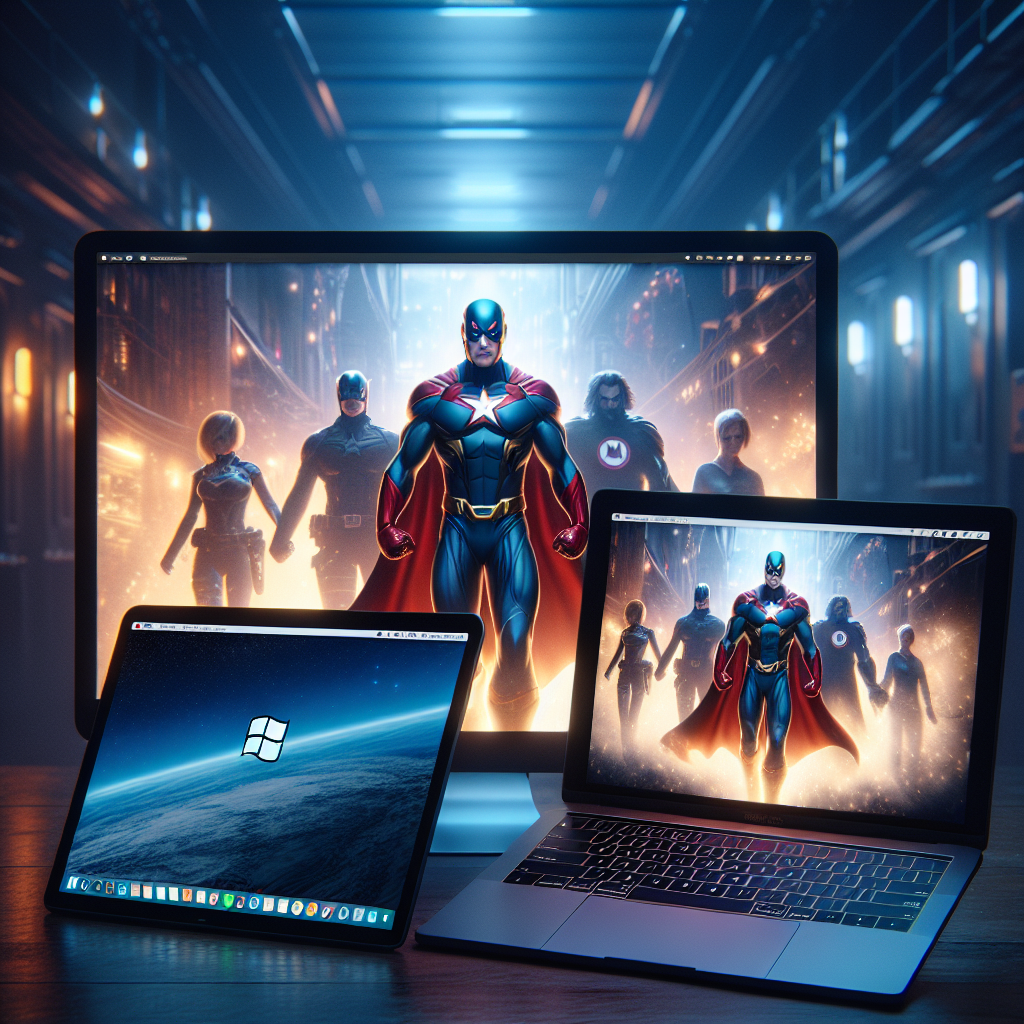NetEase Reverses 100-Year Bans on macOS and Linux Gamers for “Marvel Rivals”
In a pivotal decision, NetEase, the creator of the acclaimed game Marvel Rivals, has declared its intention to lift the contentious 100-year bans placed on users who utilized emulation software to access the game on unsupported platforms such as macOS, Linux, and Steam Deck. This announcement follows extensive criticism from the gaming community and signifies a move towards inclusivity for players on various operating systems.
Let’s explore the specifics of this issue, the technical hurdles encountered, and the implications for gamers in the future.
What Led to Player Bans?
The Function of Anti-Cheat Mechanisms
Similar to many contemporary games, Marvel Rivals incorporates an anti-cheat system to ensure a level playing field. Nonetheless, such systems are typically tailored for specific platforms, predominantly Windows PCs and gaming consoles. When players tried running the game on unsupported platforms via emulation software such as Parallels (for macOS) or Proton (for Linux), the anti-cheat system flagged these efforts as possible “cheating.”
This resulted in severe bans—some reaching as high as 100 years—issued to oblivious players merely wanting to enjoy the game on their devices of choice. These penalties led to significant frustration and negative attention for the game, particularly from macOS and Linux gamers who have historically relied on emulation tools for software compatibility.
Supported Platforms for “Marvel Rivals”
Out of the gate, Marvel Rivals offers native compatibility with:
- Windows PCs
- Sony PlayStation 5
- Microsoft Xbox Series S and X
However, Marvel Rivals has yet to provide official support for macOS, Linux, or handheld gaming devices like the Steam Deck. This limitation in platform support has driven many gamers to seek out emulation software, only to encounter unwarranted penalties.
CodeWeavers Intervenes to Fix the Situation
Who is CodeWeavers?
CodeWeavers, the firm behind the well-known emulation tool Crossover, has been instrumental in tackling the controversy. Crossover enables macOS, ChromeOS, and Linux users to run Windows applications effortlessly, including PC games like Marvel Rivals.
After news of the bans emerged, CodeWeavers’ CEO James Ramey took steps to advocate for users dependent on tools like Crossover to access games on unsupported platforms. His outreach to NetEase played a crucial role in steering the company towards a resolution.
NetEase’s Reaction: Progress on the Horizon
In light of the backlash, NetEase has conveyed on a community Discord channel that it plans to lift the bans in an upcoming update. Until the anti-cheat system can be revised to better support emulation environments, impacted players can contact NetEase to request a manual lifting of their bans.
This initiative indicates NetEase’s openness to address the issues faced by macOS, Linux, and Steam Deck users. However, until the anticipated update is deployed, the potential for being marked as “cheating” continues for those utilizing emulation software.
The Future of Gaming on Alternative Operating Systems
The Rising Need for Cross-Platform Support
The Marvel Rivals debacle emphasizes a larger concern within the gaming industry: the absence of platform inclusivity. Gamers on macOS, Linux, and other alternative operating systems frequently encounter barriers when attempting to access mainstream PC games. While Windows remains the leader in the gaming sector, the emergence of alternative platforms and handheld devices has spurred an increasing demand for cross-platform compatibility.
The Importance of Emulation Software
Emulation applications like Parallels, Proton, and Crossover have become vital for gamers on unsupported platforms. These tools allow users to run Windows-exclusive games without needing a dedicated Windows machine. However, their reliance on modifying system configurations often conflicts with anti-cheat systems, as highlighted in the Marvel Rivals situation.
Conclusion
NetEase’s choice to repeal the 100-year bans for macOS and Linux players of Marvel Rivals represents a positive stride toward equity and accessibility. Although the company must still enhance its anti-cheat system, this reaction illustrates an increasing recognition of the diverse gaming community and its requirements. As the demand for cross-platform compatibility grows, developers will need to evolve their games to cater to players across all systems—whether through native support or improved integration with emulation software.
Q&A: All You Need to Know About the “Marvel Rivals” Ban Reversal
1. Why were macOS and Linux users banned initially?
Players were banned because Marvel Rivals’ anti-cheat system misinterpreted the employment of emulation software as “cheating.” The system wasn’t crafted to identify legitimate attempts to run the game on unsupported platforms like macOS and Linux.
2. Which platforms are presently supported by “Marvel Rivals”?
The game is natively compatible with Windows PCs, PlayStation 5, and Xbox Series S and X. Other platforms, including macOS and Linux, lack official support.
3. How can banned players restore their accounts?
Until the enhancements to the anti-cheat system are rolled out, affected players can reach out to NetEase for a manual lifting of their bans. The company has committed to reversing these bans in a future update.
4. What part did CodeWeavers play in resolving this matter?
CodeWeavers CEO James Ramey directly engaged NetEase to advocate for players utilizing emulation tools like Crossover. This intervention was instrumental in prompting NetEase to take action.
5. Will NetEase offer official support for macOS and Linux in the future?
As of now, there is no formal announcement related to broadening platform support for Marvel Rivals. However, the backlash could motivate NetEase to contemplate such updates down the line.
6. Are there risks for users employing emulation software to play “Marvel Rivals”?
Indeed, until the anti-cheat system receives updates, players using emulation software might still be flagged for “cheating.” Caution is advised.
7. What does this issue signify for the future of gaming?
This event underscores the need for cross-platform compatibility and improved integration of anti-cheat systems with emulation tools. As gaming continues to diversify onto alternative platforms, developers must prioritize inclusivity to meet player demands.